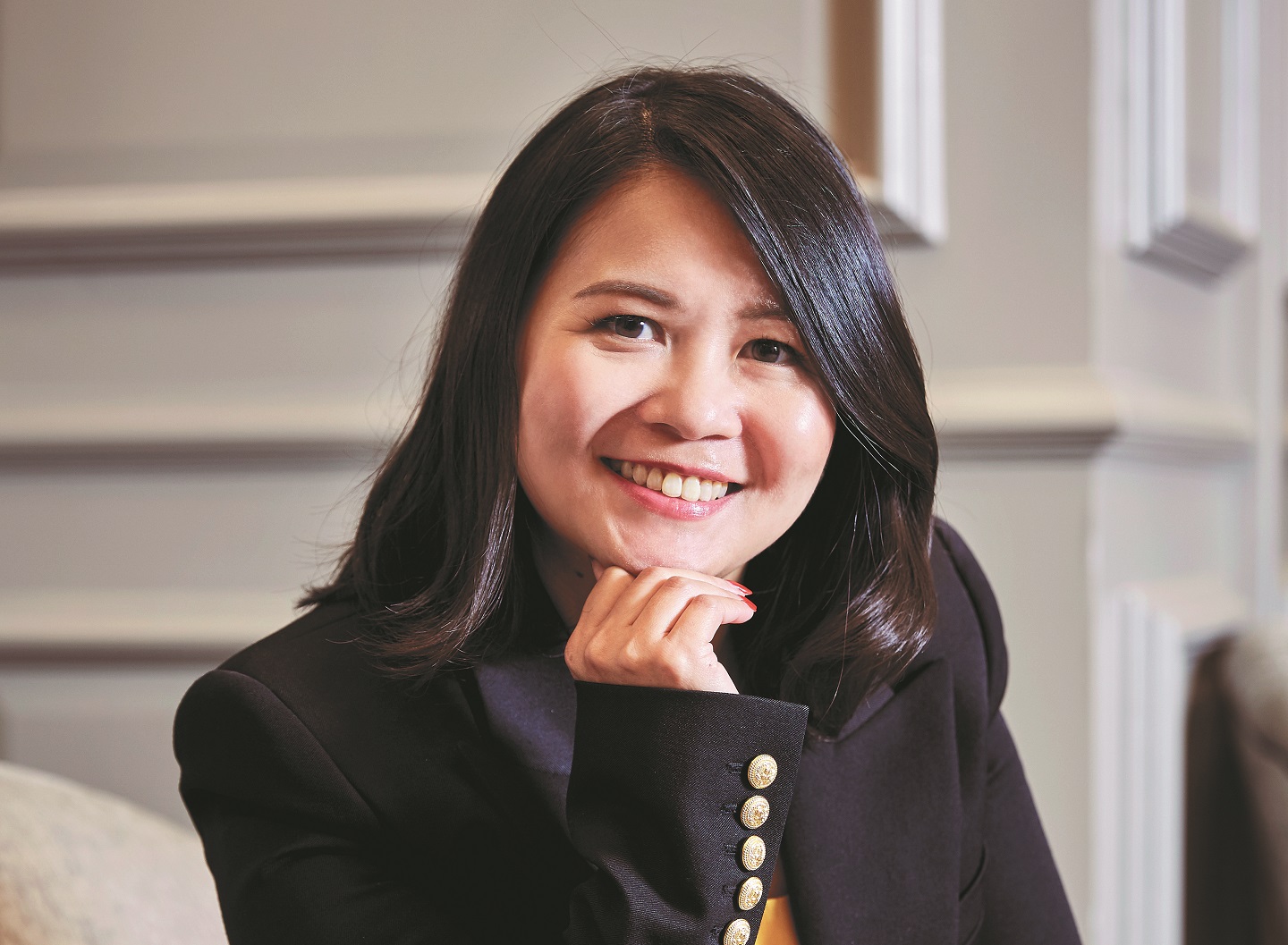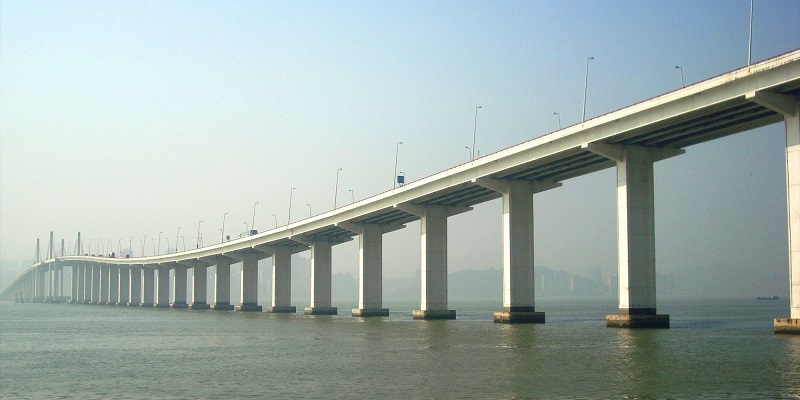
Tay thrives on challenges — the more complex the problem, the more excited she is to grapple with it (Photo: SooPhye)
The high-ceilinged concourse at JW Marriott Hotel Kuala Lumpur is a hive of bustling activity. It is the inaugural Women in Rail Malaysia Leadership Conference 2019, organised by Women in Rail Malaysia to gather global leaders from sectors spanning rail, banking and finance to entrepreneurship, public policy and technology. Transport Minister Anthony Loke and Tan Sri Rafidah Aziz, former Minister of International Trade and Industry, are delivering keynote speeches around the theme “Together Towards Tomorrow” as part of the initiative to ensure the Malaysian rail space thrives in a manner that is competitive, inclusive and diverse.
In attendance are major players and decision-makers such as Mohamed Mezghani, Belgian secretary-general of the International Association of Public Transport; Today Software Systems India president Ruchi Naithani; and Asia-Pacific regional director of Omnia Services China Dawn Chui. One of Singapore’s voices in this discussion is PwC Capital Projects and Infrastructure partner Jennifer Tay.
Her chic yellow dress, a bright pop of colour amid the sea of sedate businesswear, is a departure from her usual work uniform of black dresses spiced up with fun jewellery. Alongside Sharifah Amirah, chief client officer of Intent HQ (UK), mobilityX CEO Colin Lim (Singapore) and Kiddocare founder Nadira Yusoff (Malaysia), she is taking part in a panel discussion titled “Pressing for Progress by Disrupting the Ordinary”.
And Tay has quite a bit to say on the topic. In an exclusive interview immediately after the session, she shares that her path to the infrastructure industry was rather unconventional. A STEM (science, technology, engineering and mathematics) student until her A Levels, she then detoured to the business world, intrigued by the everyday yet vast applications of economics, as well as being driven by the need for financial assistance in her tertiary education.
“I required a scholarship to study and wanted to hedge my bets with a more rounded application,” she says. “I wanted to do a business degree and came to an agreement with my mother than if I could convince someone to give me a scholarship in that area, I could pursue it. It was a risk, but I went for an interview with Singapore Power Ltd and became the first business student it sponsored. The interview lasted two minutes. The then-CEO asked me what my life philosophy was and I said I believe in reaching for the stars so if I fail, I would at least be on a mountain. That was it.”
An elated Tay returned to Singapore Power as an intern every summer holiday on her own initiative and was placed in its overseas investment arm.
“It was investing in places like Indonesia, where power shortages are common. The impact you have on a community through these projects is incredible,” she says. “On my first business trip, I followed a business development manager to a power plant outside Jakarta. That was probably the moment I realised infrastructure development was a sector I was interested in.”
This became the cornerstone of an impressive career with some of the biggest industry names in Singapore, including Singapore Power Ltd, transport operator SMRT Corp Ltd and Singapore Telecommunications Ltd (Singtel). At the latter, where she was finance director, she managed the teams involved in the landmark listing of NetLinkNBN Trust on the Singapore Stock Exchange in 2017. This would be her most challenging and fulfilling project, as the S$3.2 billion initial public offering was the largest in Singapore since 2011 and the largest in Asia in 2017.
“After joining the industry, I realised power was just one element of the space,” she says. “An opportunity arose to join SMRT, where I would look at risk management and financial analysis, but the most interesting part of my job was overseas expansion. The company was considering investments in MRT systems outside Singapore, in the Middle East and China. I covered a variety of infrastructure projects in my career and I discovered I enjoyed transport the most because it literally connects people and moves goods and services. It has massive impact and changes lives.”
When a recruiter reached out about an opportunity at PwC, Tay was hesitant. Joining a professional services organisation was not a path she had previously considered but a two-hour interview with three then-directors soothed any uncertainties she had. Her portfolio expanded tremendously, spanning power, ports, airports, water plants and city development over 6½ years. She then took up the role at Singtel that saw her oversee the NetLink listing, but returned to PwC when the firm extended another offer. She appreciated its variety of projects and the exposure it afforded her.
“I was recently on a bus driving across the Hong Kong-Zhuhai-Macau Bridge. It was the first project I had been involved in at PwC — I had been tasked with advising the relevant governments on its financing. The amazing thing about infrastructure is that you actually see things being built and then drive through something that didn’t exist a decade ago,” she says.
zhuhai_bridge.jpg

“That said, the most demanding part of this job is people management. The NetLink IPO was a complex structure with numerous stakeholders, including several banks, and lawyers. There were many conflicting agendas and egos, but we finally saw it through — I was so emotional on listing day. The project really pushed me beyond my comfort zone. It was one of those situations where I was probably the youngest in the room but, as project director, I had to lead most of the conversations. Gender was not an issue as most of Singtel’s C-suite executives were women, but the law and banking representatives were mostly men.”
Strong mentors are key in navigating the terrain and Tay credits her first supervisor, who became a lifelong friend, for guiding her through. “My first boss — I’m not going to mention her name, I think those in the industry will know who she is — has always been my mentor and role model. It is a small industry, so she was my boss again at SMRT where she was CFO and once more at Singtel. Because we have known each other for so many years, she is always the person I go to for advice, but she is also the person who has the highest expectations of me, which can drive me nuts. I appreciate her frank feedback, though. She is very successful so she is obviously good at what she does. She was the youngest CFO of a listed company in Singapore at 35 and was made group CFO of Singtel, the biggest listed company in the country, before she hit 40.”
Tay is no slouch in the accomplishments department, either, having achieved all she has before turning the big four-0. The same generosity and lessons she received and learnt, she now hands down to her own team. Describing herself as tough but “nice, in a way”, she balances high expectations of herself, her staff and the quality of work with a willingness to get her hands dirty when the job requires all hands on deck, an example that does not go unnoticed by her colleagues.
“I believe in co-creating,” she says. “I think teamwork is important because the work we do requires a variety of skillsets and cooperation. I admire people with grit, who do not give up easily. Our roles can be frustrating so I like people who keep trying. Nobody owes you a living — you need to work hard for it and if you give up easily, you will never get there.”
Attitude is the foremost trait she looks for in hiring, and this priority in evaluation has yet to let her down. “As a society, I think we value grades more than character, but skills you can teach, a good attitude is harder to cultivate,” she says. “Life is full of surprises and you need to be able to come at them positively. I played badminton competitively until university and thought I might go pro someday but that never happened. I don’t think you can go with the flow all the time, but if you plan too rigidly, you might not be able to change course when circumstances change. So you need a combination of direction and agility.”
Building nations through infrastructure development is no walk in the park, but Tay thrives on challenges — the more complex the problem, the more excited she is to grapple with it. “At the end of the day, I want to feel like I have done the best in terms of making use of my time,” she says. “Every single day, to me, is important.”
This article first appeared on Oct 7, 2019 in The Edge Malaysia.


